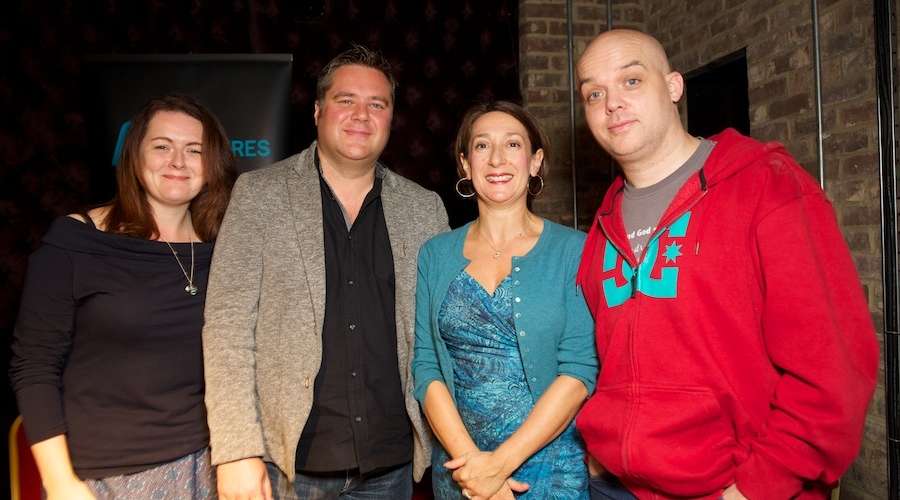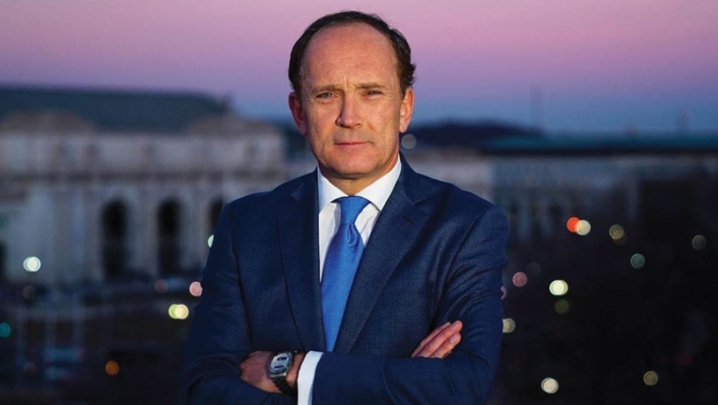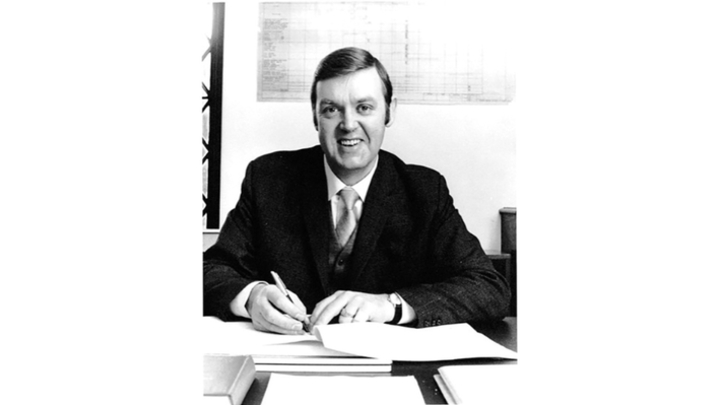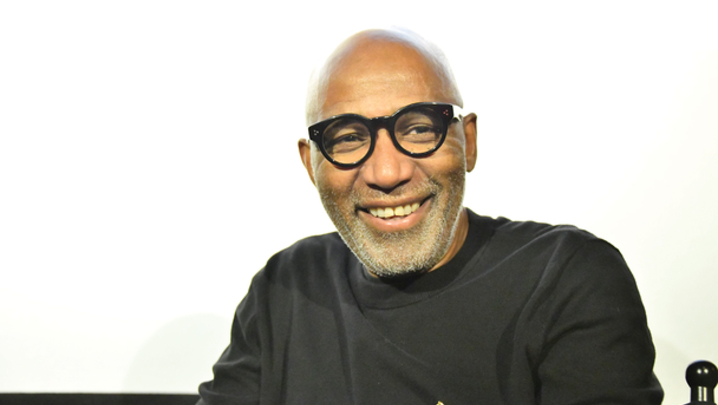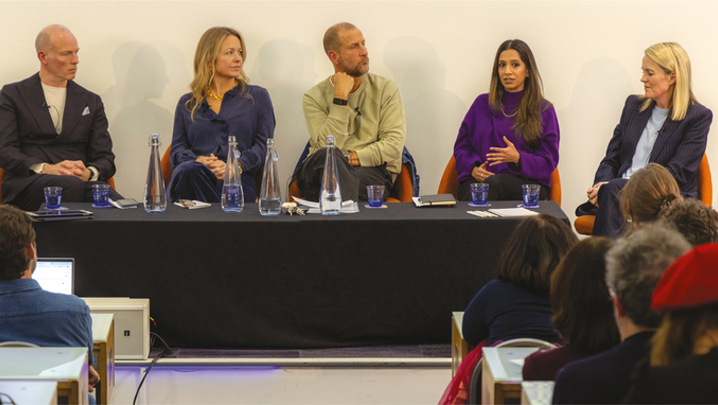Three pros share their experience of establishing successful creative careers.
There's more than one way to succeed in TV, as the latest RTS Futures event amply demonstrated. The three panellists assembled to discuss their careers at "I Made It In... Drama" had taken far-from-conventional paths into television, but all are now at the top of their professions.
Guardian TV critic Julia Raeside asked the questions in front of an audience keen to find out more about working in British television drama.
Writer Chris Lunt hit the big time when Prey, starring John Simm as a cop on the run, aired on ITV earlier this year to critical acclaim and strong audiences. Lunt's path to success, however, has been littered with failed treatments and scripts: he estimates that he has had more than 80 projects rejected by broadcasters or indies.
In fact, writing is a fourth career for Lunt, who is in his early 40s: "Since I was a little kid I had wanted to get into TV but I'm from a place called Horwich, not far from Bolton, and if you'd said, 'I want to work in TV,' you risked being burned at the stake. I said to my dad that I had plans to go to university and he asked me if I was gay."
From the age of 16 to 24, Lunt worked in engineering – "I was the world's worst lathe turner," he claimed – before joining a corporate video outfit in sales.
A lucky break took him to Prague in the mid-1990s to shoot a documentary at short notice after the cameraman booked for the job fell ill. "I'd never even used a stills camera," Lunt recalled. "All I had to do was point and squirt, which I learned reasonably quickly."
Lunt then landed a job with Manchester-based production and graphics company Red Vision, where he remained for the next 10 years. "I had three careers – as a lathe turner, a cameraman and in CGI – and I blagged my way through all of them," he said.
He wrote in his spare time and then full time when Red Vision went under in 2010. Prey was green-lit by ITV the same year. By then, Lunt had been writing, mostly in the sci-fi genre, and amassing rejections for a decade.
The writer received considerable encouragement from Red Productions founder Nicola Shindler. "She told me that I had potential, but as long as I was pitching dramas about aliens and bobbly-headed creatures, I was not going to get anything made," he recalled.
Sensibly, Lunt changed track and, with the 1993 film and 1960s TV series The Fugitive as his inspiration, he pitched Prey, backed by Red, to ITV.
The pitch was simple – "Imagine The Fugitive set in Manchester with a copper" – but effective. "Everyone was looking for a procedural cop drama with a twist at the time," he said. The RTS audience watched the powerful scene from Prey when Simm's character discovers his son is dead, notable for its spare dialogue. "That scene is written in more detail than some of the big action and dialogue sequences. I wrote every thought that went through his head," explained Lunt.
"It freed me up to tell a story without using dialogue. As a writer, you should never underestimate what a really good actor can do with silence."
As a writer, you should never underestimate what a really good actor can do with silence
With a hit behind him, Lunt is in great demand. In the pipeline is Prey 2 and a period crime drama set in Margate (to be made by Roanna Benn's indie, Drama Republic) called Dreamland, both for ITV, a Formula One drama for the BBC, and a film version of The Saint.
Drama Republic Managing Director Roanna Benn went to drama school and worked as a theatre director with 7:84 in Glasgow. She then moved into developing radio plays before shifting to TV in 1995 as a script editor on EastEnders. "That was a brilliant training ground," she recalled.
A job as script editor on Kay Mellor's women's football drama Playing the Field followed. There she met producer Greg Brenman. The two have worked together ever since, first at Tiger Aspect and then at Drama Republic, the drama indie founded by the duo in 2013.
Her indie has a new five-part serial about infidelity coming to BBC One, Doctor Foster, penned by Mike Bartlett, whose play King Charles III is a West End critical success.
My Mad Fat Diary and Secret Diary of a Call Girl are among her executive producer credits; her production credits include a Mark Haddon-penned drama, Coming Down the Mountain, about two brothers, one of whom suffers from Down's syndrome.
The RTS Futures audience watched a scene from the latter. "I heard it as a play on the radio," she recalled. "I met up with Mark, he was up for it and he adapted it for telly. We took it to Ben Stephenson at the BBC and it was a pretty straightforward [commission]."
Director Colm McCarthy, who is finishing work on the second series of BBC Two gangster drama Peaky Blinders, had always wanted to be a film director, but hadn't done anything about it by the age of 25.
You have to love directing, but it's not really a vocation – it's more a personality defect
McCarthy's first TV work was as a stand-in on Irish fantasy series The Mystic Knights of Tir Na Nog in the late 1990s. "I quit my job for it, even though I didn't know what a stand-in was. It turned out to be the person who stands in while the actor's back in the trailer to give the director of photography [somebody] to light," he said.
"I was very enthusiastic and, by the end of the shoot, I was owed a favour by the production manager. I borrowed some equipment and shot a short film – which was shit – but I had made a film," said McCarthy.
His first output, in the form of commercials and music videos, followed. "With everything I've done, I've managed to open up things for myself by continually directing," he added.
Emmy award-winning director Dearbhla Walsh, who liked one of his shorts, suggested McCarthy for Irish drama The Big Bow Wow and then, after finding an agent in England, he worked on Sky's Dream Team and the BBC One series Hustle and Murphy's Law. He has also directed episodes of BBC One dramas Ripper Street and Sherlock.
A scene from the latter, featuring Holmes's speech at Watson's wedding, was shown at the RTS Futures event. "Sherlock is comparable to a low-budget movie – you just have less time [to make it]," said McCarthy.
He has a film in development that is "pretty much financed", but he has no intention of turning his back on TV.
"Television can do things that film can't do narratively, such as tell very long, complicated stories," he said. "I'd like to work between film and TV."
The RTS Futures event, 'I Made It In... Drama', was held at The Drury Club in central London on 22 September. It was produced by Sasha Breslau and Anna Fern.
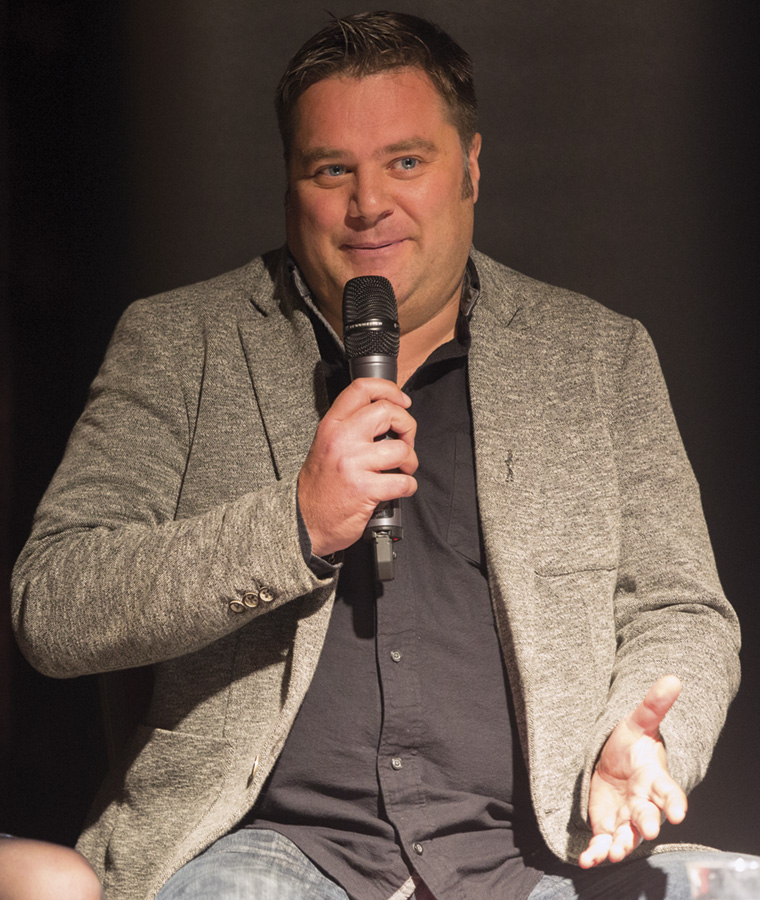 Chris Lunt. (Cred: Paul Hampartsoumian)
Chris Lunt. (Cred: Paul Hampartsoumian)
Chris Lunt on writing
'I used to do a lot of amateur dramatics... so it seems obvious to me that when you write something you don't just keep it in your head – you say it. If you can say it and it feels natural, then it will to the actor, too.
'You have to wholly commit to writing as a career... I love it. When you have been a lathe turner working shifts, sitting there making stuff up is never going to feel like a job.
'Your first attempt is going to be rubbish, the second, third, fourth and fifth are going to be pretty rubbish, too, and then, over the course of a couple of years, you're going to start getting good. That's when you revisit those first ideas, which were probably fine, and start to work at them again.
'Agents are notoriously difficult to get signed to – they are highly subscribed and often have a set amount of people they are prepared to represent. If you send them a script and it's good enough... and the agent sees potential for making money out of you – 10% out of anything you make – they sign you up. Send scripts in [because] agents have people to read stuff...
'Alternatively, speak to production companies. I had a really strong working relationship with [Red Production's] Nicola Shindler and I had stuff in development before I picked up an agent.
'Until Prey was being made, my agent – who is fantastic – had never got me a paid job. I'd knocked on doors and got myself [work] and then he had represented me and got the top money for that job. After Prey, people started knocking on his door and, since then, jobs have come to me through my agent.'
Roanna Benn on script editing and producing
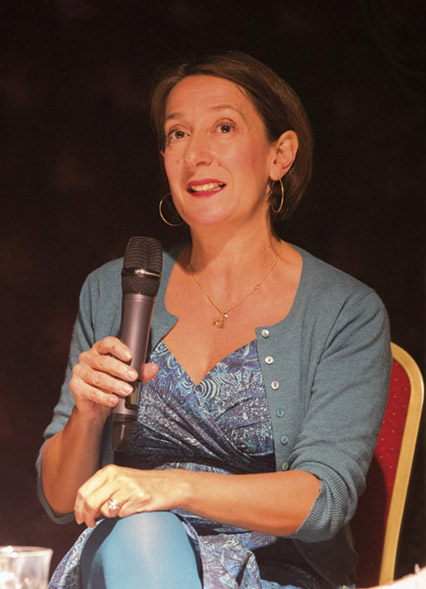 Roanna Benn. Photo cred: Paul Hampartsoumian
Roanna Benn. Photo cred: Paul Hampartsoumian
'There is a very simple trajectory to becoming an executive producer: mostly it's script editing, producing, then executive producing...
'There's not enough script editors – it's a great job but it requires great trust: you've got to trust them not to [mess] up the relationship with the precious writer, they've got to do great notes on the script for the producer and come up with great ideas themselves.
'If you do it well, you'll be [quickly] asked to produce. If you're a good producer, you'll be asked to be an exec because, believe it or not, there just aren't enough good ones. These jobs require a multitude of skills: good judgement on scripts; coming up with ideas; having a good visual eye; being a good people person...
'If you're interested in script editing ... long-running shows are the best training ground. They have to trust you with the writers straight away.
'Most people I've known who've gone into script editing have been asked to script read first. Offer to read a couple for free and, if people like what you do, they'll hire you. The bigger companies, such as Tiger Aspect, hire script readers.'
 Colm McCarthy. (Cred: Paul Hampartsoumian)
Colm McCarthy. (Cred: Paul Hampartsoumian)
Colm McCarthy on directing
'It has to be an all-consuming passion ... You have to love directing, but it's not really a vocation – it's more a personality defect.
'You have to go and just direct stuff. Now that's easier than it's ever been before, but it's also more competitive because it's easier for everyone else, too. If you direct good stuff and put it out there, keep being productive and you'll become a director.
'Most short films you see are shit and the number-one reason for that is because somebody who wants to be a director felt that they had to write the script. Find somebody who wants to write.'

